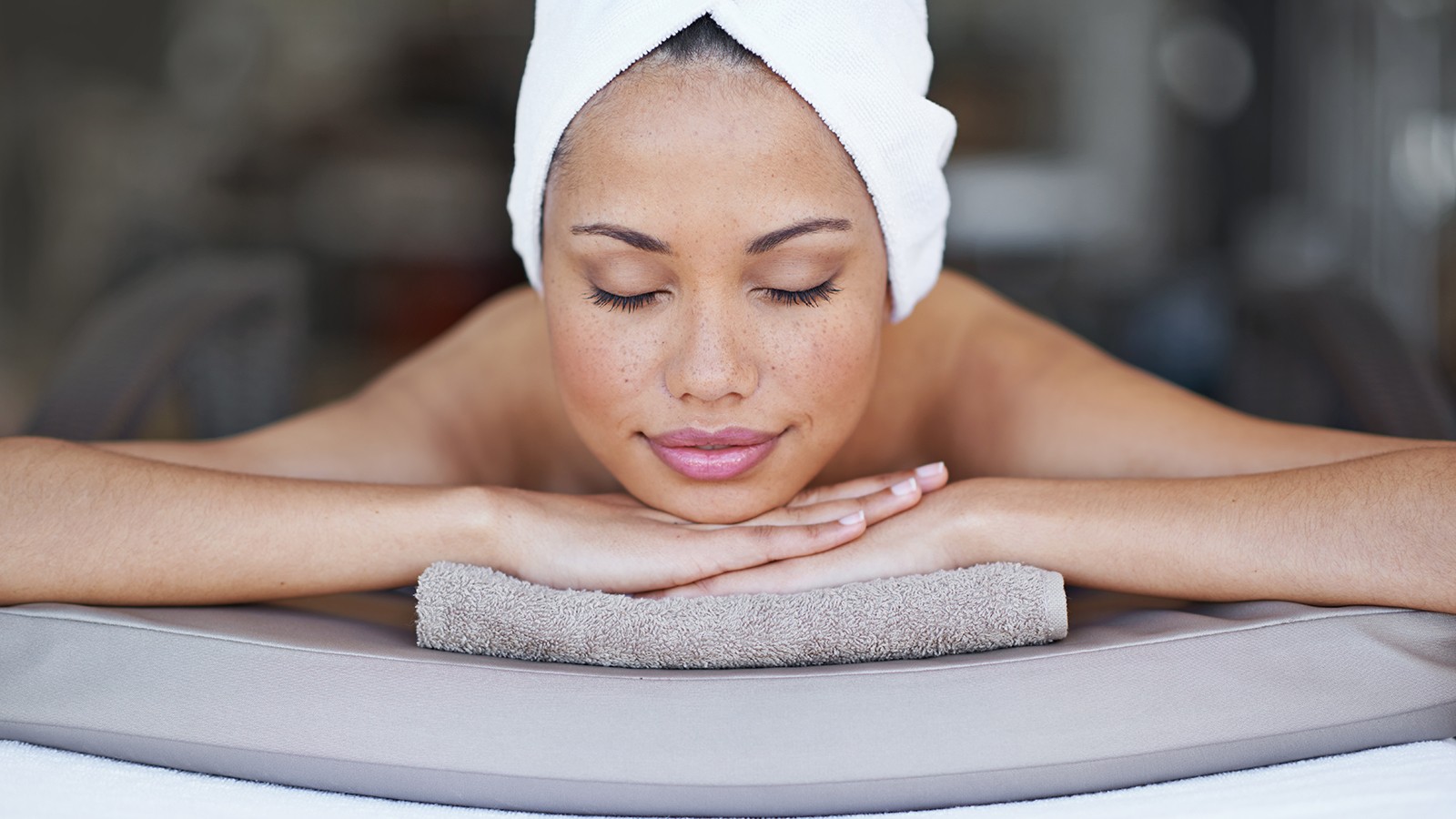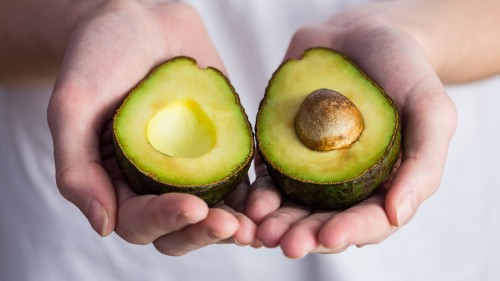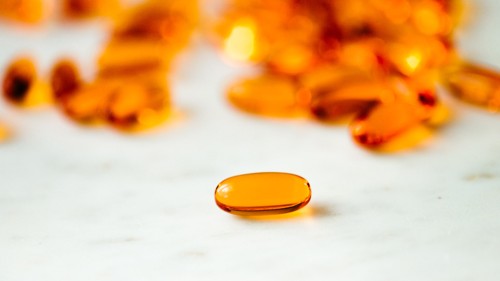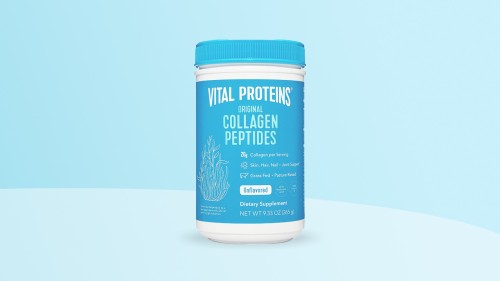The 12 Best Natural and Proven Ways to Keep Your Skin Healthy
Published on July 28, 2021
Medically Reviewed by Anthony Dugarte, MD
The condition of your skin plays a big role in its ability to protect you. It’s important to prioritize your skin health, and there are many simple things you can practice every day that may help.


Your skin is the largest barrier and organ of your body, and it’s normal for it to change as you get older. (1)
While we often focus on the appearance of our skin for beauty, it’s most important to understand how to keep your skin healthy because healthy skin becomes beautiful skin.
Leading a healthy lifestyle, and incorporating a few simple everyday practices to prioritize your skin care, can make all the difference in the health of your skin.
Below are 12 evidence-based ways to help keep your skin as happy and healthy as possible.
1. Practice Safe UV and Environmental Exposure
The great outdoors is full of benefits, like helping your body produce vitamin D and even boosting mood.
However, too much sunlight and environmental pollution can have adverse effects on your skin.
Too much sun can accelerate aging, as well as increase your risk for melanoma and other skin cancers, especially among fair-skinned people. (2, 3, 4)
Airborne pollution can influence skin metabolism, inflammatory processes, and oxidative stress, which can promote aging and chronic skin diseases. (5)
Overall, a combination of pollutants and sunlight may work synergistically to damage the skin in people who spend a lot of time outside. (6)
Put It Into Action:
- Make sunscreen a part of your daily beauty routine. Encourage regular use of sunscreen early on in life to potentially help reduce the risk for skin cancers later. (7)
- If you’re going to be outside in the direct sunlight for an extended period, apply sunscreen to other areas of exposed skin or wear protective clothing, particularly if you’re fair-skinned.
- Avoid tanning beds as their use has been linked to an increased risk for skin cancer. (8)
- Be aware of potential pollutants in the environments you live, work, and play in, and do your best to minimize prolonged exposure.
2. Support Your Gut Microbiome
There’s plenty of research examining the relationship between the health of your gut and your overall health outcomes. (9)
Researchers also believe there’s a link between your gut microbiome and the health of your skin. (10)
If you want to keep your skin glowing, it’s prudent to keep your gut bacteria happy. (11)
One way to do that may be by consuming prebiotics and probiotics, which have been shown to have therapeutic benefits to the skin by modulating its unique immune system. (12)
Put It Into Action:
- Make probiotics a regular part of your diet, as they feed the good bacteria in your gut and help maintain an optimal balance. Foods naturally rich in probiotics include sauerkraut, kimchi, tempeh, kefir, and miso.
- Include high-fiber plant foods into your diet. These are a natural source of prebiotics and polyphenols that benefit the gut microbiome, potentially improving acne and other skin conditions. (13)
3. Don’t Touch Your Face
Touching your face frequently is a habit that most of us have. (14)
Whether it’s rubbing your eyes, scratching your forehead, or picking at your skin, one study found that people touched their faces an average of 23 times per hour. (15)
The problem with touching your face so often is that whatever is on your hands and fingers is transferred to your face.
Scratching and picking your face can also promote inflammation and leave scarring on your skin over time.
Put It Into Action:
- Wash your hands often to help minimize germs and grime that can be transferred to your face and other areas of skin.
- Practice face-washing morning and night to help remove particles that may have accumulated overnight or throughout the day.
- Try to minimize how much you touch your face during the day. Some people find that having a fidget spinner, stress ball, or Rubik’s cube handy can help keep your fingers busy.
4. Don’t Smoke
Smoking isn’t just bad for your lungs. It’s also been linked to skin damage. (16)
Cigarette smoke can lead to skin changes and even speed up the progress of irreversible aging and skin diseases over time, like cancers.
Some studies have found that the skin of 40-year-old smokers resembles the skin of 70-year-old nonsmokers. (17)
What’s worse, these effects can be transferred to children or other household members through secondhand smoke.
While research on e-cigarettes, or vaping, and skin is limited, they still contain nicotine and propylene glycol, which can have damaging effects on the skin. (16, 18)
Put It Into Action:
- If you smoke, quit. Smoking cessation resources are widely available. If you don’t currently smoke, this is just another reason not to start the habit. (19)
- Don’t assume that using e-cigarettes is a safer bet for your skin – they are likely just as damaging (although more research is needed).
5. Exfoliate
There are countless skincare products out there, including many that claim you need them to exfoliate regularly.
While dermatologists may prescribe professional chemical peels to help acne, photodamage, scars, and pigmentary disorders, you can practice gentle exfoliation more often at home. (20)
A light exfoliation, using a non-irritating cleanser with mild friction, or a toner that helps remove dead skin cells from the surface of your skin, may be helpful.
Exfoliation can also prep your skin, so it’s better able to absorb moisturizing products.
Put It Into Action:
- Wash your face with a mild exfoliating cleanser, morning and night.
- Consider using a toner to help remove unwanted substances.
6. Moisturize
In addition to a light exfoliation, promote skin health through other gentle practices, like adding some extra moisture to it.
Help trap moisture in your skin by applying a moisturizer day and night and after you take a shower or wash your face.
Applying moisturizers within a few minutes of bathing helps replenish and seal hydration in your skin.
Put It Into Action:
- For dehydrated skin, use a water-based moisturizer as part of your daily routine. Apply this to your whole body within a few minutes of showering to help seal in hydration.
- Practice other gentle skin habits to lock more moisture in, like patting it dry with a towel after bathing, using warm versus hot water, and limiting bathing to one 5–10 minute shower per day as excessive moisture can be counteractive.
7. Practice Stress Management
It’s no secret that stress manifests from the inside out. One way that unmanaged stress can present is in your skin.
Research suggests that there’s a “brain-skin axis” behind the ability of psychological stress to exacerbate skin diseases. (21)
Unmanaged stress can promote inflammation, impair wound healing and skin barrier function, and lead to premature aging. (22)
Stress has been identified as a factor in skin conditions like vulgar psoriasis, warts, atopic dermatitis, acne, hair loss, and chronic urticaria. (23, 24)
For instance, a 2007 study found that highly stressed adolescents were 23% more likely to have acne. (25)
Put It Into Action:
- Prioritize your mental health by making self-care a regular part of your lifestyle.
- If you’re experiencing psychological stress, especially if it’s interrupting your ability to enjoy normal activities, it’s important to seek mental health resources like therapy with a licensed professional.
8. Enjoy a Variety of Whole Plant Foods
Good nutrition, with an array of fiber, antioxidants, vitamins, and minerals predominantly from plant foods, supports the health of your skin. (26)
The impact of diet has been demonstrated in common skin conditions like acne, psoriasis, and atopic dermatitis. (27)
Some research suggests that a diet high in added sugar may promote the production of advanced glycation end products, compounds associated with aging. (28, 29)
Phytoestrogens, estrogen-like compounds derived from plants, are thought to boost the production of hyaluronic acid, collagen, and the extracellular protein matrix of the skin. (30)
Plus, plant foods – particularly fruits and vegetables – are rich in antioxidants.
Antioxidants help protect your cells from oxidative damage by fighting off free radicals, protecting the skin from sun damage, wrinkles, inflammation, and premature aging. (31, 32)
Put It Into Action:
- Eat a wide variety of colorful plant foods, especially fruits and vegetables like berries, bell peppers, broccoli, tomatoes, and leafy greens to fuel your skin with antioxidants. (31, 33)
- Include natural sources of phytoestrogens, like soybeans, garlic, celery, carrots, potatoes, rice, wheat, red clover, sweet potatoes, and fruit.
- Choose nutrient-dense whole foods as often as possible to minimize excessive added sugar intake.
9. Get Enough Sleep
Sleep is your body’s opportunity to restore itself every night.
Setting yourself up for a good night’s rest helps you feel better in the morning, think more clearly, and have more energy. It also helps your skin stay healthy.
Some research says that sleep deprivation can reduce skin barrier function and mucus membranes. (34)
There may also be a relationship between sleep disorders and chronic skin diseases. (35, 36)
An estimated 40% of Americans get fewer than 7 hours of sleep per night, yet experts recommend 7–9 hours per night. (37, 38)
Put It Into Action:
- Improve your sleep routine. Go to bed at a similar time every night, and create an environment conducive to sleep. For instance, get blackout curtains, wear a sleep mask, make your bed with comfy sheets, and use a fan or white noise if needed.
- Avoid blue light for a few hours before going to bed, as research suggests this can interrupt the circadian rhythm and make it more difficult to achieve restful sleep. (39)
- Make washing your pillowcases and sheets a regular part of your skincare routine. This can help minimize repeated exposure to bacteria, grease, dirt, and grime left on them from your face and hair.
10. Stay Hydrated
Your body is made up of approximately 60% water, which supports your cells, blood, organs, and processes. The skin itself contains around 30% water. (40, 41)
One of the main functions of your skin is to act as a protective barrier for your body, but it’s also responsible for retaining water. (42)
Drinking enough water, combined with other skin moisturizing methods, can help support the plumpness, turgor, elasticity, and resiliency of your skin. (41)
Put It Into Action:
- Water intake needs vary. High-end recommendations for water intake are around 9 cups (2,200 ml) for women and 12 cups (3,000 ml) for men. Drinking more than this is not generally indicated. (43)
- Keep a water bottle with you throughout the day to make sure it’s regularly accessible. It can help to fill a bottle at night and keep it in the fridge to grab in the morning.
- Pay attention to your urine color to determine your degree of hydration. Pale yellow urine is ideal, whereas dark yellow indicates dehydration and totally clear indicates overhydration. While hydration is important, more isn’t always better. (44)
11. Consider Collagen Supplements
Collagen is the most abundant protein matrix in your skin and connective tissues, but your natural production of it decreases with age. (45, 46)
There are countless collagen supplements on the market today, which many people take in hopes of helping combat wrinkles and dry skin.
Some research supports the use of collagen supplements for improving the integrity of skin protein, reducing the appearance of wrinkles, increasing skin elasticity, and boosting skin hydration. (47, 48, 49, 50)
It’s presumed that collagen supplements increase overall collagen availability in your skin as well as help boost production. (51)
Put It Into Action:
- Collagen supplements may prove beneficial for some people, but not everyone. As with all supplements, speak to your healthcare provider before starting collagen.
- You can also include foods in your diet that may help boost collagen production and support skin health. The synthesis of collagen peptides may be supported by nutrients found in fish, chicken cartilage, egg whites, and citrus fruits. (52, 53, 54, 55, 56)
12. Get Enough Healthy Fats
Omega-3 fats, ALA, EPA, and DHA, are known to have an anti-inflammatory effect in the body. (57)
Having an omega-3 deficiency has been associated with dry skin, so getting enough can help keep the skin moisturized and supple. (58)
The most concentrated natural sources of omega-3s include fatty fish, seafood, and algae. (59)
Other plant foods contain some, but primarily in the form of ALA, which has a small conversation rate to EPA and DHA. (60)
Put It Into Action:
- Make omega-3s a regular part of your diet. This could include things like baked salmon for dinner, adding roasted tofu cubes or edamame to your salad, making avocado toast for breakfast, serving fruit with nut butter, and adding seeds to your smoothies.
- If you don’t eat fish or seafood, you might consider adding an EPA and DHA omega-3 supplement. The two main types are fish oil and algae oil.
The Bottom Line
Your skin is the largest organ of your body, responsible for protection and hydration.
Taking care of your skin is essential for keeping it healthy so that it can continue doing its job well.
Simple daily lifestyle habits to support skin health include things like gently exfoliating and moisturizing, eating an omega 3 and antioxidant-rich diet, staying hydrated, managing stress, and potentially using certain supplements like collagen.
At WellnessVerge, we only use reputable sources, including peer-reviewed medical journals and well-respected academic institutions.
- The human skin microbiome:
https://pubmed.ncbi.nlm.nih.gov/29332945/ - Biomarkers, oxidative stress and autophagy in skin aging:
https://pubmed.ncbi.nlm.nih.gov/32105850/ - Mechanisms and prevention of UV-induced melanoma:
https://pubmed.ncbi.nlm.nih.gov/28703311/ - Skin Cancer:
https://pubmed.ncbi.nlm.nih.gov/26612377/ - The impact of airborne pollution on skin:
https://pubmed.ncbi.nlm.nih.gov/30897234/ - Pollution and Sun Exposure: A Deleterious Synergy. Mechanisms and Opportunities for Skin Protection:
https://pubmed.ncbi.nlm.nih.gov/28925870/ - Sunscreens: safety, efficacy and appropriate use:
https://pubmed.ncbi.nlm.nih.gov/11978139/ - Use of Tanning Beds and Incidence of Skin Cancer:
https://www.ncbi.nlm.nih.gov/pmc/articles/PMC3383111/ - The gut microbiome in health and in disease:
https://www.ncbi.nlm.nih.gov/pmc/articles/PMC4290017/ - The Skin and Gut Microbiome and Its Role in Common Dermatologic Conditions:
https://pubmed.ncbi.nlm.nih.gov/31717915/ - Microbiome and skin biology:
https://pubmed.ncbi.nlm.nih.gov/31107258/ - Impact of prebiotics and probiotics on skin health:
https://pubmed.ncbi.nlm.nih.gov/24583611/ - Edible Plants and Their Influence on the Gut Microbiome and Acne:
https://pubmed.ncbi.nlm.nih.gov/28513546/ - How Not to Touch Your Face:
https://www.umms.org/coronavirus/what-to-know/prevention-safety/protect/not-touch-face - Face touching: a frequent habit that has implications for hand hygiene:
https://pubmed.ncbi.nlm.nih.gov/25637115/ - Smoking and the skin:
https://pubmed.ncbi.nlm.nih.gov/22348557/ - Cigarette smoking and its influence on skin aging:
https://pubmed.ncbi.nlm.nih.gov/23421102/ - Propylene Glycol:
https://pubmed.ncbi.nlm.nih.gov/29059092/ - Quit Smoking:
https://www.cdc.gov/tobacco/quit_smoking/index.htm - Skin Resurfacing Chemical Peels:
https://pubmed.ncbi.nlm.nih.gov/31613532/ - The impact of psychosocial stress on healthy skin:
https://pubmed.ncbi.nlm.nih.gov/25808947/ - Brain-Skin Connection: Impact of Psychological Stress on Skin:
https://link.springer.com/referenceworkentry/10.1007/978-3-662-47398-6_153 - Stress-induced Interaction of Skin Immune Cells, Hormones, and Neurotransmitters:
https://pubmed.ncbi.nlm.nih.gov/32276734/ - The Impact of Pyschological Stress on Acne:
https://pubmed.ncbi.nlm.nih.gov/28871928/ - Study of psychological stress, sebum production and acne vulgaris in adolescents:
https://pubmed.ncbi.nlm.nih.gov/17340019/ - Nutrition and skin:
https://pubmed.ncbi.nlm.nih.gov/27401878/ - Diet and skin: a primer:
https://pubmed.ncbi.nlm.nih.gov/33465207/ - Nutrition and aging skin: sugar and glycation:
https://pubmed.ncbi.nlm.nih.gov/20620757/ - Sugar Sag: Glycation and the Role of Diet in Aging Skin:
https://pubmed.ncbi.nlm.nih.gov/27224842/ - Phytoestrogens and Their Health Effect:
https://www.ncbi.nlm.nih.gov/pmc/articles/PMC6390141/ - Systemic antioxidants and skin health:
https://pubmed.ncbi.nlm.nih.gov/23135663/ - Oxidative stress in aging human skin:
https://pubmed.ncbi.nlm.nih.gov/25906193/ - Lycopene-rich products and dietary photoprotection:
https://pubmed.ncbi.nlm.nih.gov/16465309/ - Can poor sleep affect skin integrity?:
https://pubmed.ncbi.nlm.nih.gov/20678867/ - Prevalence of mood and sleep problems in chronic skin diseases: a pilot study:
https://pubmed.ncbi.nlm.nih.gov/18543589/ - Sleep-wake disorders and dermatology:
https://pubmed.ncbi.nlm.nih.gov/23245983/ - In U.S., 40% Get Less Than Recommended Amount of Sleep:
https://news.gallup.com/poll/166553/less-recommended-amount-sleep.aspx - How Much Sleep Do We Really Need?:
https://www.sleepfoundation.org/how-sleep-works/how-much-sleep-do-we-really-need - Systematic review of light exposure impact on human circadian rhythm:
https://pubmed.ncbi.nlm.nih.gov/30311830/ - The Water in You: Water and the Human Body:
https://www.usgs.gov/special-topic/water-science-school/science/water-you-water-and-human-body - Water, Hydration and Health:
https://www.ncbi.nlm.nih.gov/pmc/articles/PMC2908954/ - Skin hydration: a review on its molecular mechanisms:
https://pubmed.ncbi.nlm.nih.gov/17524122/ - How much water do we really need to drink?:
https://pubmed.ncbi.nlm.nih.gov/20356431/ - Combining urine color and void number to assess hydration in adults and children:
https://pubmed.ncbi.nlm.nih.gov/33462456/ - Molecular Cell Biology. 4th edition. Collagen: The Fibrous Proteins of the Matrix:
https://www.ncbi.nlm.nih.gov/books/NBK21582/ - Decreased Collagen Production in Chronologically Aged Skin:
https://www.ncbi.nlm.nih.gov/pmc/articles/PMC1606623/ - Oral intake of specific bioactive collagen peptides reduces skin wrinkles and increases dermal matrix synthesis:
https://pubmed.ncbi.nlm.nih.gov/24401291/ - Daily consumption of the collagen supplement Pure Gold Collagen® reduces visible signs of aging:
https://www.ncbi.nlm.nih.gov/pmc/articles/PMC4206255/ - Oral supplementation of specific collagen peptides has beneficial effects on human skin physiology: a double-blind, placebo-controlled study:
https://pubmed.ncbi.nlm.nih.gov/23949208/ - Effects of a nutritional supplement containing collagen peptides on skin elasticity, hydration and wrinkles:
https://www.jmnn.org/article.asp?issn=2278-1870;year=2015;volume=4;issue=1;spage=47;epage=53;aulast=Borumand - Skin anti-aging strategies:
https://www.ncbi.nlm.nih.gov/pmc/articles/PMC3583892/ - Discovering the link between nutrition and skin aging:
https://www.ncbi.nlm.nih.gov/pmc/articles/PMC3583891/ - Skin Antiageing and Systemic Redox Effects of Supplementation with Marine Collagen Peptides and Plant-Derived Antioxidants: A Single-Blind Case-Control Clinical Study:
https://www.ncbi.nlm.nih.gov/pmc/articles/PMC4745978/ - Ingestion of BioCell Collagen®, a novel hydrolyzed chicken sternal cartilage extract; enhanced blood microcirculation and reduced facial aging signs:
https://www.ncbi.nlm.nih.gov/pmc/articles/PMC3426261/ - Effects of Egg White Protein Supplementation on Muscle Strength and Serum Free Amino Acid Concentrations:
https://www.ncbi.nlm.nih.gov/pmc/articles/PMC3497008/ - The Roles of Vitamin C in Skin Health:
https://www.ncbi.nlm.nih.gov/pmc/articles/PMC5579659/ - Omega 3 Fatty Acid and Skin Diseases:
https://pubmed.ncbi.nlm.nih.gov/33613558/ - Omega-3 Fatty Acids and Skin:
https://link.springer.com/chapter/10.1007%2F978-3-642-12264-4_9 - Fishy business: effect of omega-3 fatty acids on zinc transporters and free zinc availability in human neuronal cells:
https://pubmed.ncbi.nlm.nih.gov/25195602/ - Achieving optimal essential fatty acid status in vegetarians: current knowledge and practical implications:
https://pubmed.ncbi.nlm.nih.gov/12936959/






